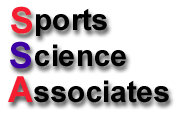

WORKSHOP INTRODUCTION PAGE
![]()
|
Click here to cross to the workshop control page and lectures |
|
|
Workshop Description : Modern coaching theory is becoming increasingly complex. New sport science revelations and practices by elite sporting nations indicate that coaching programs have to be up-to-date to be effective. This workshop describes seven principles for coaching advanced athletes, the features that underlie effective coaching systems, and coaching behaviors that indicate a degradation of coaching effort and effectiveness. Participants should gain an understanding of what needs to be done to produce maximized performances in athletes through coaching effectiveness.Format : The workshop involves listening to lectures and taking notes in the supplied workshop manual. The writing of notes is crucial to understanding and retention. As much as possible throughout the workshop, the user should translate examples given in the lectures to his/her sport and record them as such. Because there are so many sports, it is not possible to provide examples for all. It is the user's responsibilitly to perform that translation function.There are two forms of communication associated with this workshop, personal recording and auditory lectures. They have been designed to allow participants to progress at their own pace. Individuals who have difficulty in directing their own study might find it difficult to complete this experience. If you have attended workshops and clinics associated with your sport, and enjoyed the experience, then one should expect to successfully complete this workshop. To access lectures and to download the workshop manual click on the link that is highlighted above. The manual should be downloaded first, and then lectures activated within each topic. |
All audio files are in .mp3 format. The default audio player on your computer must be able to play that file format. The volume of the audio files should be adjusted to a level that is comfortable for the listener. Availability : This workshop is offered as a free service of San Diego State University and Sports Science Associates.Required Materials and Resources : The computer used to participate in this experience will need to have a browser with and .mp3 player and Adobe Acrobat Reader or a compatible .pdf file reader plug-in capability. Before accessing lectures, a copy of the workshop manual will need to be downloaded by using Adobe Acrobat Reader or a compatible .pdf file reader.Optional Texts : The contents of this workshop are available in more extended forms in several books. They are:
|
|
Time Estimates
|
Workshop Topics
|
|
Progress Through the Workshop : Topics should be studied in the order provided. Follow the steps below.
|
The information in this workshop is that of Brent S. Rushall and is fully copyrighted. It is solely for the participant's personal use. No portion of this workshop experience can be reproduced without the express permission of the copyright holder. Coaching Science Abstracts is a web site that contains further information on this and many other important coaching topics. |
![]()